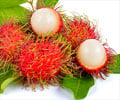A team of researchers at Brown University has identified a cellular mechanism that could someday help fight the aging process.
The discovery by Stephen Helfand and Nicola Neretti as well as their colleagues adds another piece to the puzzle that Helfand, a professor of biology, molecular biology, cell biology and biochemistry, first discovered in 2000.That year, he identified a mutation in the Indy gene that can extend the life span of fruit flies.
Following studies of the Indy flies have led to the new finding that a mechanism in those genetically altered fruit flies appears to reduce significantly the production of free radicals, a cellular by-product that can contribute to the aging process.
This intervention takes place with few or no side effects on the quality of life for the fruit fly.
According to researchers, the discovery could lead to the development of new anti-aging treatments.
"There are very few, if any, interventions that are known to dramatically extend healthy lifespan," Helfand said.
Advertisement
With Helfand having established that the mutated Indy gene helped fruit flies live longer, he now wanted to explore what mechanisms lead to the longer life of the fruit fly.
Advertisement
By comparing the expression level of all genes in the Indy flies to that of normal flies, they made an important finding. Some of the genes involved in generating the power necessary for normal cell life were expressed at lower levels in the Indy flies.
This led to a decrease in free radicals and the damage they normally cause in the cell, but it surprisingly did not decrease the overall amount of energy in the cell.
These studies provide evidence for possible interventions that can alter metabolism in a way that reduces free radical or oxidative damage and extends life span, without some of the negative consequences normally associated with a change in metabolism.
The findings are published Jan. 21 in the online Early Edition of the Proceedings of the National Academy of Sciences.
Source-ANI
PRI/SK















